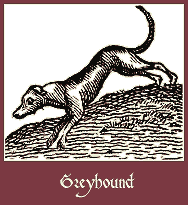Greasing the Wheels
The sending and receiving of gifts (never money!) in exchange for recent or future favors is common practice all through courtly society.This is not considered corrupt. It's just the way things work. In fact, the system couldn't run without it.
There is no undue delicacy about defining what would be an acceptable gift, even to naming "a pretty dog" or a specific kind of hawk.
 Quails are a prime delicacy, and can be used to sweeten a
request, attract attention, or turn away wrath. (In the
'40s, Lord Lisle bought them in large lots to give away a
dozen at a time.)
Quails are a prime delicacy, and can be used to sweeten a
request, attract attention, or turn away wrath. (In the
'40s, Lord Lisle bought them in large lots to give away a
dozen at a time.)
You can send a gift just to let someone important know you're here, even without having a specific request or favor in mind. They'll owe you.
You may pass on a request from someone else. For example:
- "My friend, if you will send my lord of Leicester that hound of yours that he admired, he'll know it came from you and that I suggested it. He and I will both be in your debt, and he will be in mine." Get it?
Most frequent douceur (sweetener) type gifts include:
- Game (often quail or deer)
- Includes all game birds, such as herons, plovers, cranes, egrets, as well as cooked venison, boar's head, sturgeon, wild swine, salmon. May be cooked or caged, as appropriate.
- Wine
- The best wines are clarets from Gascony, though tastes differ.
- Hawks
- All kinds of hawks are good. So are caged song birds, such as linnets.
- Hunting dogs
- Mastiffs, Talbot hounds, bloodhounds, coursing hounds, and so on.
- Rare or special books
-
Manuscripts in Greek and Latin, translations from
Arabic and Hebrew, certain devotional texts
- Also home made things like marmalade, beer, and honey
Sources
Hartley: Lost Country Life
Rowse: Life of the Society
Stone: Crisis of the Aristocracy





25 March 2008 mps
